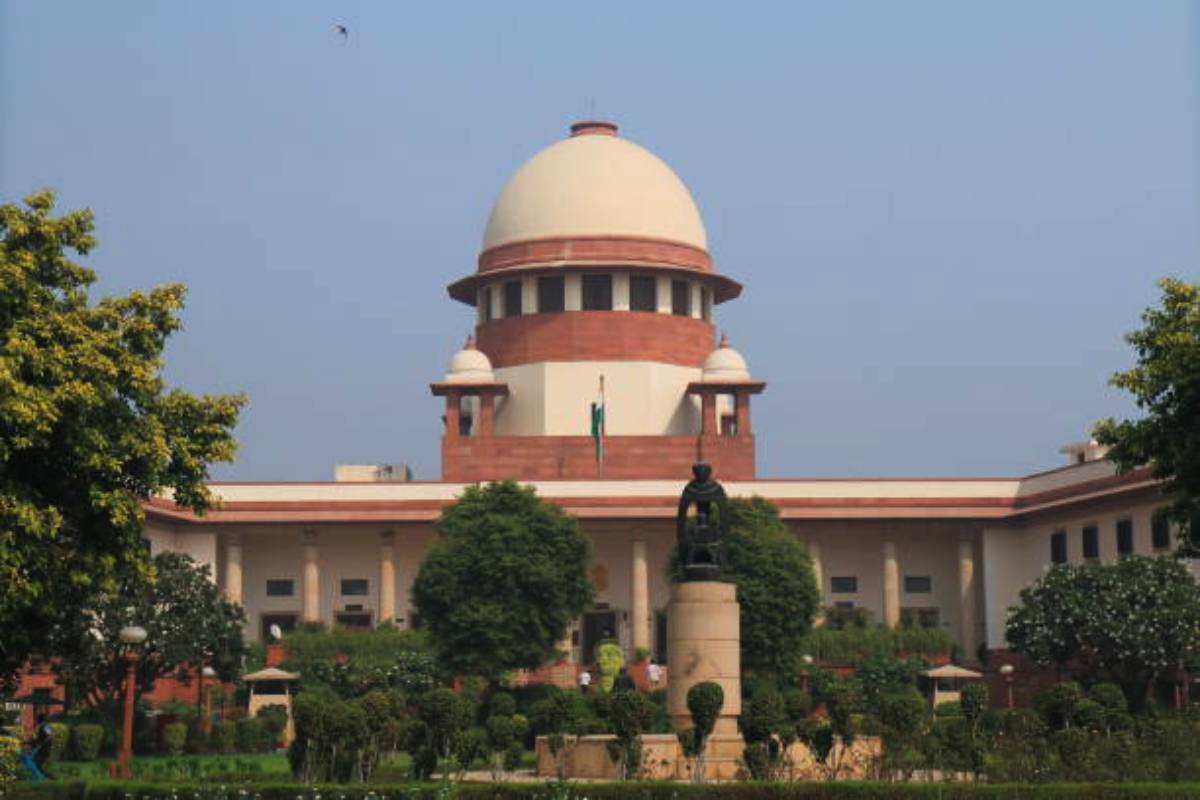The Supreme Court on Wednesday modified its June 3, 2022 order mandating a one-kilometre eco-sensitive zone (ESZ) around protected areas, saying rather than avoiding man-animal conflict, it will intensify this.
A bench of Justices B.R. Gavai, Vikram Nath, and Sanjay Karol, modifying the order, said that there are inbuilt safeguards for preventing rampant construction and abuse of process which may be detrimental to the development and maintenance of wildlife habitats.
Advertisement
The bench said if the direction as contained in paragraph 56.5 of the order dated June 3, 2022 that even for continuation of existing activities, the permission of the PCCF (Principal Chief Conservator of Forests) of each state or Union Territory would be necessary, remains unmodified, there will be hundreds of villages wherein millions of people would be residing, and the PCCF would be left with no other job except to consider such applications for permission to continue such activities.
“Even a farmer desirous to continue farming activities would be required to seek such permission. We find that such a direction is impossible to be implemented,” it noted.
“We are of the view that if such a direction is continued, rather than avoiding man-animal conflict, it will intensify the same. The requirement of declaring ESZs (buffer zone) is not to hamper day to day activities of the citizens but is meant to protect the precious forests/protected areas from any negative impact, and to refine the environment around the protected areas.”
Acting on a review plea by the Centre and others, a bench said if the direction as issued is continued, it would certainly hamper the day-to-day activities of the citizens residing in ESZs and court finds that the said direction needs to be modified.
“If no permanent construction is to be permitted for any purpose, a villager who is desirous to reconstruct his house would not be permitted.
“Similarly, if there is an extension in their family and some additional construction is required for accommodating the enlarged family, the same would also not be permitted. Similarly, if the government decides to construct schools, dispensaries, anganwadis, village stores, water tanks and other basic structures for improvement of the life of the villagers, the same would also not be permitted.”
Elaborating on the effect of the June 2022 order, the top court said there are certain projects of national and strategic importance such as construction of national highways, railways, defence related infrastructure etc and the effect of the direction is that all such activities will be permanently prohibited.
“If the order dated 3rd June 2022 (supra) is not modified, it will also be impossible for the Forest Departments to conduct eco-development activities around National Parks and Sanctuaries. The said activities are required with the dual objectives of protection of wildlife and provision of benefits for the local communities.”
The bench said, “We also modify the direction contained in paragraph 56.4 of the order dated 3rd June 2022 (supra) and direct that mining within the National Park and Wildlife Sanctuary and within an area of one kilometre from the boundary of such National Park and Wildlife Sanctuary shall not be permissible”.
“We further direct that while granting Environmental and Forest Clearances for project activities in ESZ and other areas outside the Protected Areas, the Union of India as well as various state/Union Territorygfovernments shall strictly follow the provisions contained in the Office Memorandum dated 17th May 2022 issued by MoEF & CC.”
The apex court was informed that the ESZ around Valmiki Wildlife Sanctuary, Valmiki National Park and Valmiki Tiger Reserve in Bihar extends from 0 to 9 kilometres and 323 villages are situated within it; the ESZ around Betla National Park, Palamau Wildlife Sanctuary, and Mahuadanr Wolf Sanctuary in Jharkhand extends from 0 to 9 kilometres and 382 villages are situated within it, in the ESZ around Nagarjunasagar Srisailam Tiger Reserve in Andhra Pradesh, 100 villages are situated etc.,
The Centre, represented by Additional Solicitor General Aishwarya Bhati, submitted that it has already issued guidelines on February 9, 2011 for declaration of ESZs around national parks and wildlife sanctuaries.
The top court was informed that these guidelines were developed after consulting the National Board for Wildlife and all the state and UT governments, providing a detailed procedure for submitting a proposal for declaration of the areas around national parks and wildlife sanctuaries as ESZs.
The Centre had stressed that the direction of June 3, 2022, would cause great hardship to the citizens residing in the ESZs.











